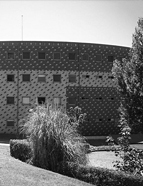

And 1968 was the year of the first turning point in Porto's School, whose 4th Cluster, from then on, almost always recruited new teachers from its own graduates: Carlos Alberto Ferreira de Almeida (1934-1996) and Eugénio Francisco dos Santos (b. 1937) were pioneers in this situation, both in the year in question; Luís Alberto Adão da Fonseca (b. 1945), 1 year later; Cândido dos Santos (b. 1933) and Francisco Fortunato Queirós (1933-2008) in 1970; Aurélio de Araújo Oliveira (b. 1944) in 1971; Fernando Alberto Pereira de Sousa (b. 1942) in 1973; and, in the new category of monitor (1970 ss.) names such as Armando Luís de Carvalho Homem (b. 1950; for Medieval History); José Marques (b. 1937; for Palaeography and Diplomatics); and Armando Coelho Ferreira da Silva (b. 1943; for Archaeology); all of them took office between April 1973 and January 1974.
From 1962 to 1974, the FL/UP followed the History curricula enshrined in the curricular reforms of the FFLL of 1957 and 1968: i.e., courses lasting 5 years + degree examination (the latter consisting of the public defence of a dissertation expressly prepared for such purpose); the second of these reforms reintroduced the bachelor degree in the Universities, which was obtained at the end of the 3rd year; the ultimate goal was to increase the number of potential candidates for teaching in secondary, technical and (especially) preparatory education (which had just begun).
When considering the teaching of History and the production of historiography in Porto in the School's first decade, the complementary qualities of experience and youth should be noted. The former is symbolized first and foremost in the erudition of António Cruz - practiced since the distant 30s - who, at the time of the School's inception, was in the final throes of his doctoral thesis on the medieval «scriptorium» of Santa Cruz in Coimbra (defended late 1964) and which forthwith marked the teaching of the curricular unit Palaeography and Diplomatics and also, occasionally, that of History of Medieval Culture and of History of Portugal II; In addition to being the first PhD holder of the FL/UP, António Cruz would also become the first full professor of the 4th Cluster (1969) and the first non-interim Dean of the School (1970-1974).
